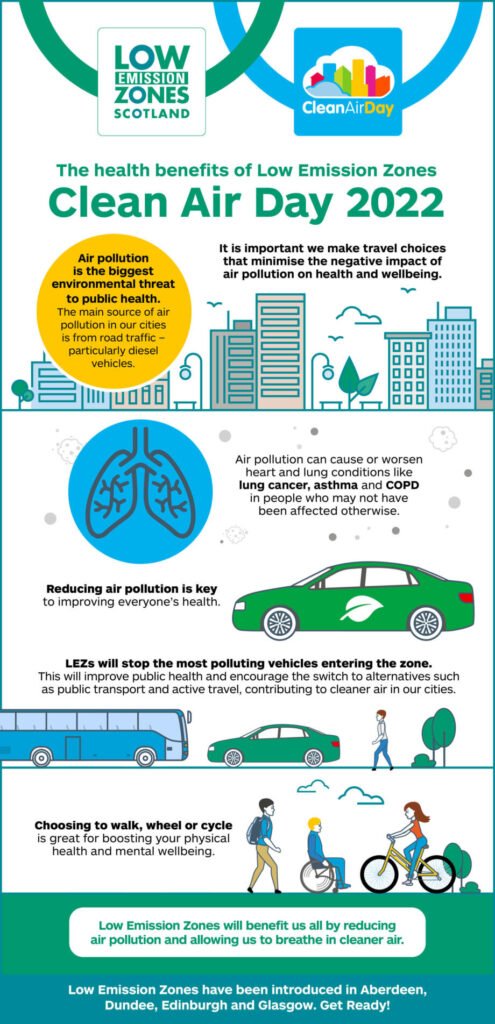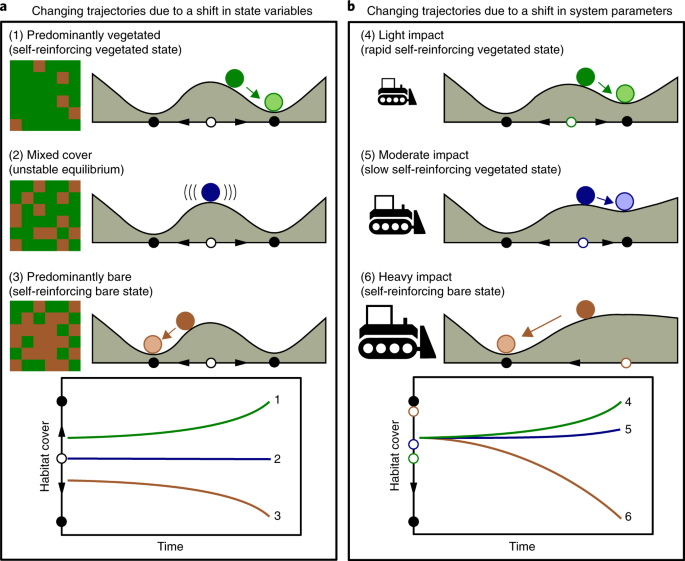Are you a teenager eager to learn how to safely operate a lawn mower? Look no further! This article provides valuable tips and guidance on lawn mower safety specifically for teens. With proper training and knowledge, you can confidently tackle the task of mowing the lawn while minimizing any potential risks or accidents. So, get ready to become a responsible mower operator and enhance your lawn care skills!
1. Understanding the Dangers of Lawn Mowers
Lawn mowers are powerful machines that can help you maintain a beautiful lawn, but it’s important to understand that they can also be dangerous if not used properly. By being aware of the potential risks and taking appropriate precautions, you can ensure a safe mowing experience.
1.1 Types of Lawn Mowers
There are several different types of lawn mowers, including push mowers, self-propelled mowers, and riding mowers. Each type has its own set of safety considerations. Push mowers, for example, require physical exertion and may pose a risk of injury if not used correctly. Self-propelled mowers and riding mowers, on the other hand, may require additional caution due to their increased size and power. It’s important to familiarize yourself with the specific safety guidelines for the type of lawn mower you will be using.
1.2 Common Accidents and Injuries
Accidents involving lawn mowers can result in serious injuries, ranging from cuts and bruises to broken bones and even amputations. Common accidents include slips and falls, being struck by a flying object, or having a limb caught in the mower blades. It’s crucial to understand the potential risks and take appropriate measures to prevent accidents from happening.
1.3 Statistics on Teen Lawn Mower Accidents
Teenagers are at a higher risk of lawn mower accidents due to their lack of experience and often overconfidence. According to statistics, each year thousands of teens are injured as a result of lawn mower accidents. These accidents can lead to severe injuries and even death. It is therefore crucial for teens to receive proper safety education and training before operating lawn mowers.
2. Preparing for Safe Operation
Before you start mowing the lawn, there are several key steps you should take to ensure safe operation of the lawn mower.
2.1 Read the Manual and Follow Instructions
Reading the manual is the first and most important step to ensure safe operation. The manual will provide you with important information on how to use the lawn mower correctly, including specific safety instructions and precautions. It is crucial to carefully read and understand the manual before operating the machine.
2.2 Wear Appropriate Safety Gear
Wearing the right safety gear is essential to protect yourself while operating a lawn mower. This includes sturdy shoes or boots, long pants, eye protection such as safety goggles or glasses, and hearing protection, especially if you will be using a loud mower. It’s also a good idea to wear gloves to protect your hands. Remember, safety gear should always be worn when operating a lawn mower.
2.3 Inspect the Lawn Mower
Before starting the lawn mower, it’s important to inspect it for any damage or defects that could affect its operation or safety. Check the blades, belts, and other moving parts to make sure they are in good condition. Additionally, check for leaks, loose parts, and ensure that all safety features are working correctly. If you notice any issues, it’s crucial to address them before using the mower.
2.4 Clear the Area of Hazards
Before you begin mowing, take the time to clear the area of any potential hazards. This includes removing rocks, sticks, toys, and other debris that could be picked up and thrown by the mower blades. Additionally, keep an eye out for any uneven terrain, holes, or hidden obstacles that could pose a tripping or mowing hazard.
3. Basic Operating Techniques and Tips
Once you have completed the necessary preparations, it’s time to start mowing the lawn. Here are some basic operating techniques and tips to keep in mind:
3.1 Starting and Stopping the Lawn Mower Safely
When starting the lawn mower, make sure it is on a flat, even surface. Follow the manufacturer’s instructions for starting the mower and avoid any immediate obstacles or bystanders. Similarly, when you need to stop the mower, release the throttle or turn off the engine according to the manufacturer’s instructions. Always make sure the blades have come to a complete stop before leaving the mower unattended.
3.2 Correct Body Positioning
Maintaining the correct body positioning while operating the lawn mower is crucial for your safety. Stand in an upright position with a firm grip on the handles. Keep your hands and feet away from the blades, belts, and other moving parts. Make sure you are aware of your surroundings and constantly scan the area to avoid any potential hazards.
3.3 Proper Handling of Grass Clippings
When mowing the lawn, it’s important to handle grass clippings properly to prevent them from becoming hazardous debris. Avoid discharging grass clippings toward people or areas where they could cause harm. Consider using a grass catcher or bagger attachment to collect the clippings, or alternatively, direct them away from walkways and driveways to avoid slips or falls.
3.4 Mowing on Slopes and Uneven Terrain
When mowing on slopes or uneven terrain, extra caution must be taken to avoid accidents. If the slope is too steep or the terrain too rough, consider using a mower specifically designed for these conditions. When operating on slopes, mow across the slope, not up and down, to reduce the risk of the mower tipping over. Be mindful of your footing and maintain a slow and steady pace to ensure stability.
4. Avoiding Potential Hazards
To ensure your safety while operating a lawn mower, it is essential to be aware of and actively avoid potential hazards.
4.1 Keep Children and Pets Away
One of the most important safety measures is to keep children and pets away from the area being mowed. Children should never be allowed to operate a lawn mower, even under adult supervision. The noise and distractions of mowing can easily lead to accidents. Create a clear boundary and communicate to others in your household about the importance of staying away from the mowing area.
4.2 Be Aware of Potential Flying Debris
Lawn mowers can pick up and throw objects, such as rocks, sticks, or toys, at high speeds. Always be aware of what is in the vicinity of the mower and avoid mowing near windows, parked cars, or other areas where flying debris could cause damage or injury. Clear the area before mowing, and if necessary, use a mower with a built-in safety feature to prevent the ejection of debris.
4.3 Stay Clear of Blades and Moving Parts
Never attempt to touch or clean the blades or other moving parts of a lawn mower while it is running. Even when the mower is not in operation, use caution when inspecting or performing maintenance tasks. Wait for the blades to stop completely and disconnect the spark plug wire as an additional safety measure before attempting any maintenance or cleaning procedures.
4.4 Avoid Mowing in Poor Weather Conditions
Operating a lawn mower in poor weather conditions, such as heavy rain, strong winds, or slippery conditions, can increase the risk of accidents. Wet grass can make the lawn mower blades less effective and lead to slips and falls. If the weather is not suitable for mowing, it’s best to postpone the task until conditions improve.
5. Being Mindful of Surroundings
To prevent accidents and ensure safety, it’s important to be mindful of your surroundings while operating a lawn mower.
5.1 Identify and Mark Obstacles
Before you start mowing, identify and mark any immovable objects in the yard, such as rocks, tree stumps, or flower beds. This will help you avoid hitting these obstacles and damaging the mower or causing injury. If necessary, use brightly colored markers or flags to make the obstacles more visible.
5.2 Watch Out for Hidden Objects
Be cautious of hidden objects that may be concealed in the grass, such as rocks, sprinkler heads, or toys. These objects can cause damage to the mower or injure you if they are hit by the blades. Take your time and scan the area before mowing to ensure there are no hidden hazards.
5.3 Be Cautious of Overhead Power Lines
When mowing near trees or other tall objects, be aware of any overhead power lines that may be present. Contact with power lines can be extremely dangerous and potentially fatal. Maintain a safe distance from power lines and never attempt to trim branches or other vegetation that is in close proximity to them. If you suspect any issues with power lines, contact your local utility company for assistance.
6. Managing Fuel and Maintenance
Proper fuel management and regular maintenance are important for the safe operation of a lawn mower.
6.1 Safely Refueling the Lawn Mower
When refueling the lawn mower, make sure the engine is turned off and has cooled down. Remove the fuel cap carefully to avoid any fuel spillage or contact with hot engine components. Use a funnel to pour fuel into the tank and avoid overfilling. Wipe up any spills immediately and dispose of fuel containers properly.
6.2 Regular Maintenance Checks
Regular maintenance checks are essential for keeping your lawn mower in good working condition and ensuring your safety. This includes checking the oil levels, inspecting and sharpening the blades, cleaning or replacing the air filter, and inspecting the spark plug. Follow the manufacturer’s recommendations for maintenance intervals and procedures to keep your lawn mower in optimal condition.
6.3 Proper Storage of the Lawn Mower
When the mowing season is over, it’s important to properly store the lawn mower to prevent accidents and damage. Drain any remaining fuel from the tank in a well-ventilated area. Clean the mower thoroughly, removing any grass clippings or debris. Ensure that the blade is in good condition and secure the mower in a dry and secure location, such as a shed or garage, away from children and potential hazards.
7. Understanding the Limitations
It’s important to recognize and understand the limitations associated with operating a lawn mower.
7.1 Age and Legal Restrictions
There may be age and legal restrictions in place regarding who can operate a lawn mower. It’s important to familiarize yourself with these restrictions and ensure that you meet the minimum age requirements before operating a mower. If you are underage or not legally allowed to operate a lawn mower, seek assistance from a responsible adult.
7.2 Physical and Mental Fitness Requirements
Operating a lawn mower requires physical and mental fitness. It’s important to be in good physical condition and have the strength, coordination, and stamina necessary to control the mower safely. If you have any physical or mental conditions that could affect your ability to operate the mower safely, consult with a healthcare professional before attempting to use the machine.
8. Developing Good Safety Habits
Developing good safety habits is essential for preventing accidents and ensuring a safe mowing experience.
8.1 Importance of Concentration and Focus
Maintaining concentration and focus while operating a lawn mower is crucial for your safety. Avoid distractions such as using your phone or listening to loud music that can take your attention away from the task at hand. Stay alert and aware of your surroundings throughout the mowing process.
8.2 Communicating with Others in the Yard
Effective communication with others in the yard is essential for everyone’s safety. Before you start mowing, inform family members, neighbors, or any other individuals that might be present in the area. Let them know to stay clear of the mowing area and establish clear signals or hand gestures to communicate if necessary.
8.3 Taking Breaks and Staying Hydrated
Mowing the lawn can be physically demanding, especially during hot weather. It’s important to take regular breaks and stay hydrated to prevent fatigue and dehydration. Drink plenty of water and rest in shaded areas to avoid overheating. Working in short, manageable sessions can help maintain your energy levels and reduce the risk of accidents due to exhaustion.
9. Emergency Preparedness
Being prepared for emergencies is an important aspect of lawn mower safety.
9.1 Knowing How to Shut Off the Lawn Mower
In the event of an emergency, it’s crucial to know how to quickly and safely shut off the lawn mower. Familiarize yourself with the emergency shut-off procedures provided by the manufacturer. Keep in mind that different mowers may have different shut-off mechanisms, so it’s important to be familiar with the specific model you are using.
9.2 First Aid and Emergency Response Knowledge
Having basic knowledge of first aid and emergency response can be invaluable in the event of an accident or injury. Take the time to learn and understand basic first aid techniques, such as how to apply pressure to stop bleeding or how to perform CPR. Keep a first aid kit readily available in your home and ensure that everyone in your household knows its location.
9.3 Creating an Emergency Action Plan
In addition to knowing how to respond to emergencies, it’s important to have an emergency action plan in place. This plan should outline the steps to be taken in the event of an accident or injury, including how to contact emergency services and where to seek medical attention. Share the plan with family members or other individuals who may be present in the yard during mowing.
10. Seeking Professional Training and Guidance
For maximum safety and confidence while operating a lawn mower, it is highly recommended to seek professional training and guidance.
10.1 Lawn Mower Safety Courses and Certification
Many organizations and institutions offer lawn mower safety courses and certification programs. These courses provide comprehensive training on the safe operation of lawn mowers, covering topics such as operation techniques, maintenance, and emergency preparedness. Completing a safety course and obtaining certification can equip you with valuable knowledge and skills to prevent accidents and ensure a safe mowing experience.
10.2 Consulting with Experts and Professionals
When in doubt or if you have any specific concerns about lawn mower safety, it’s always a good idea to consult with experts and professionals in the field. This includes contacting lawn mower manufacturers, local garden centers, or professional landscapers who can provide guidance and advice tailored to your specific needs and requirements.
By following these comprehensive lawn mower safety tips, you can ensure a safe and enjoyable mowing experience. Remember, taking the necessary precautions and being mindful of potential hazards is essential for preventing accidents and injuries. Prioritize your safety and the safety of others by always operating a lawn mower with caution and respect for its power.





